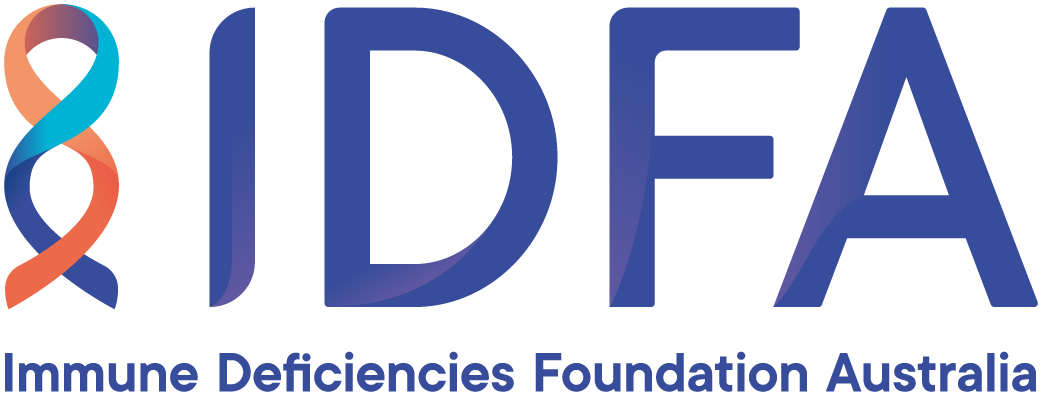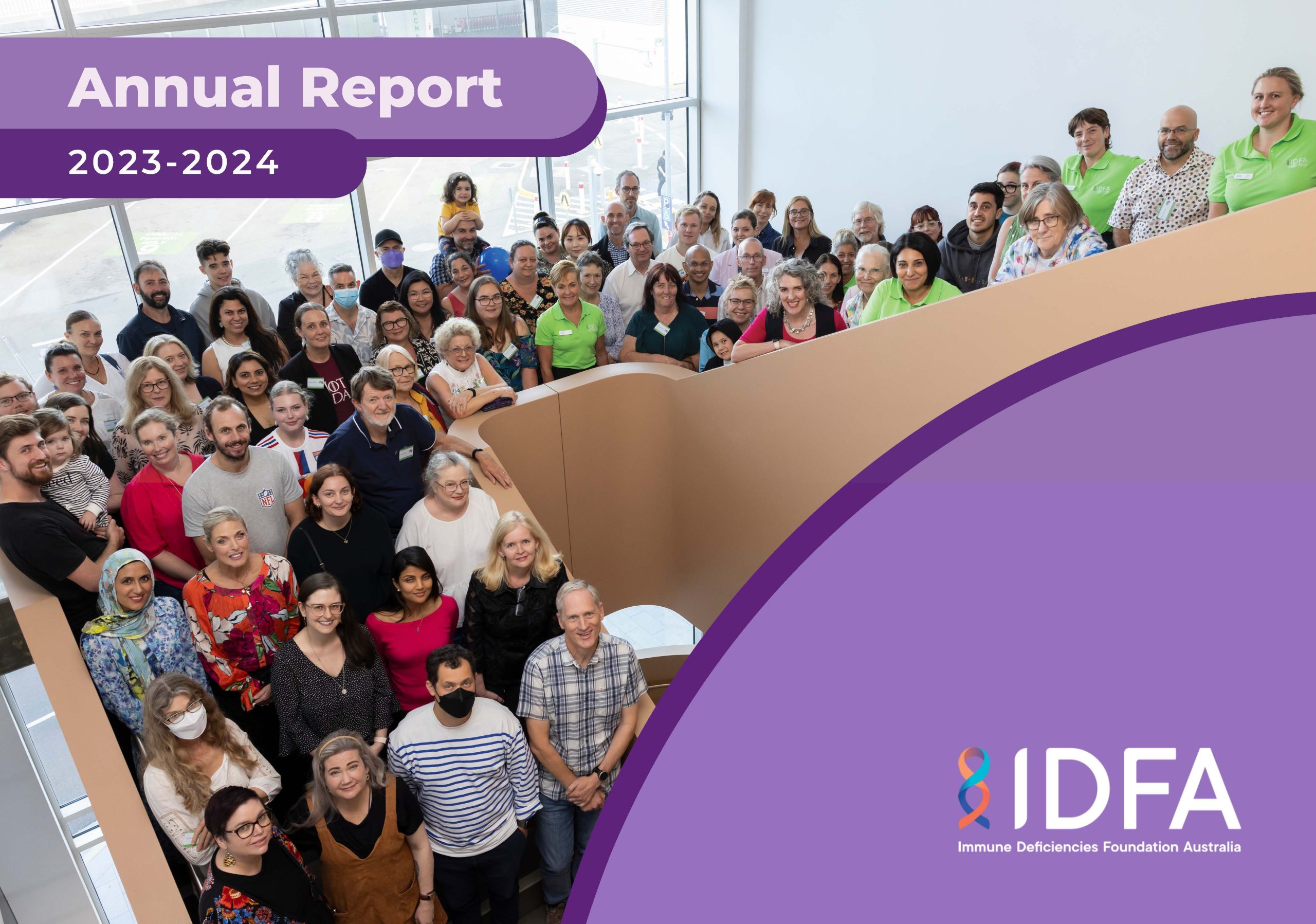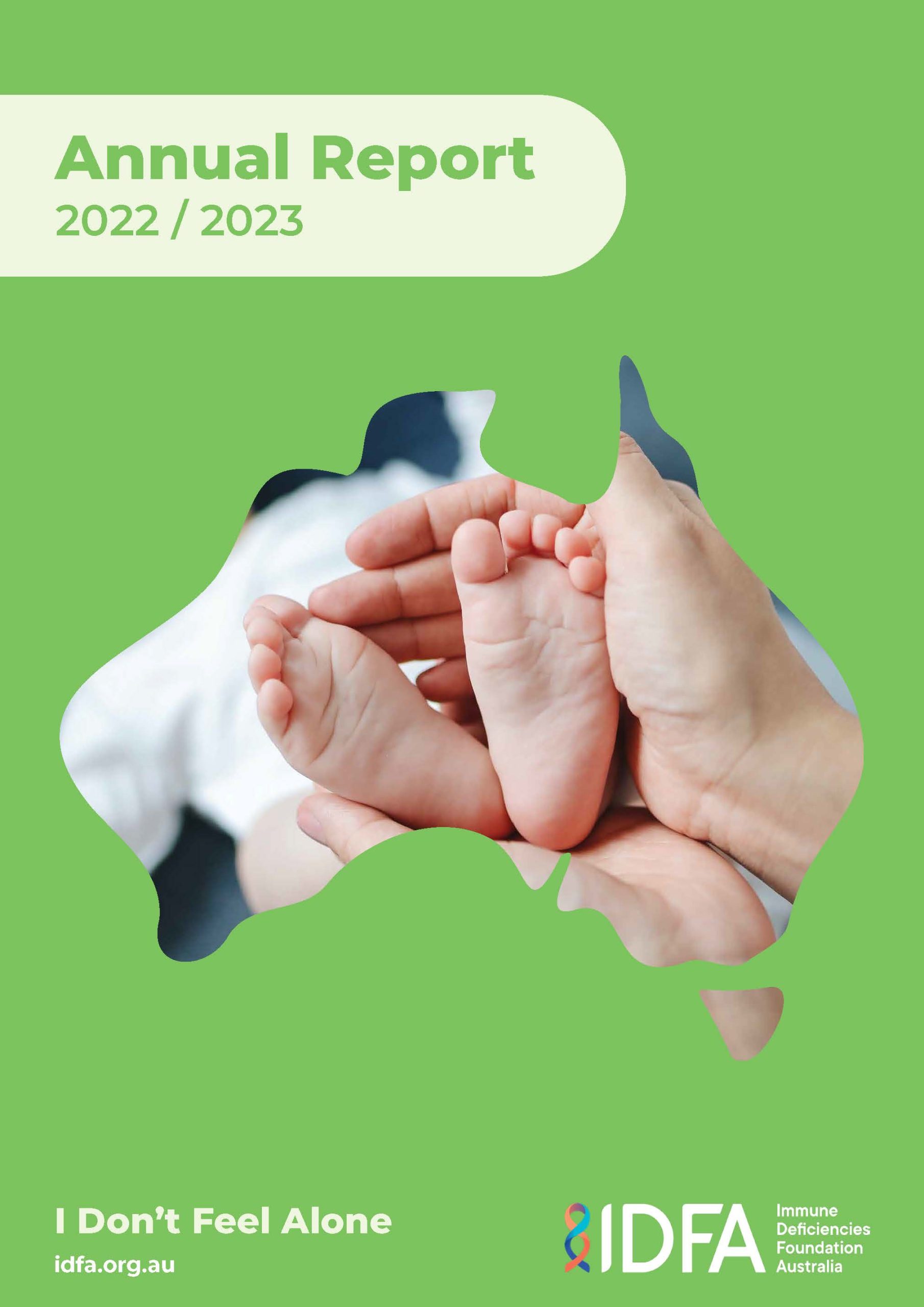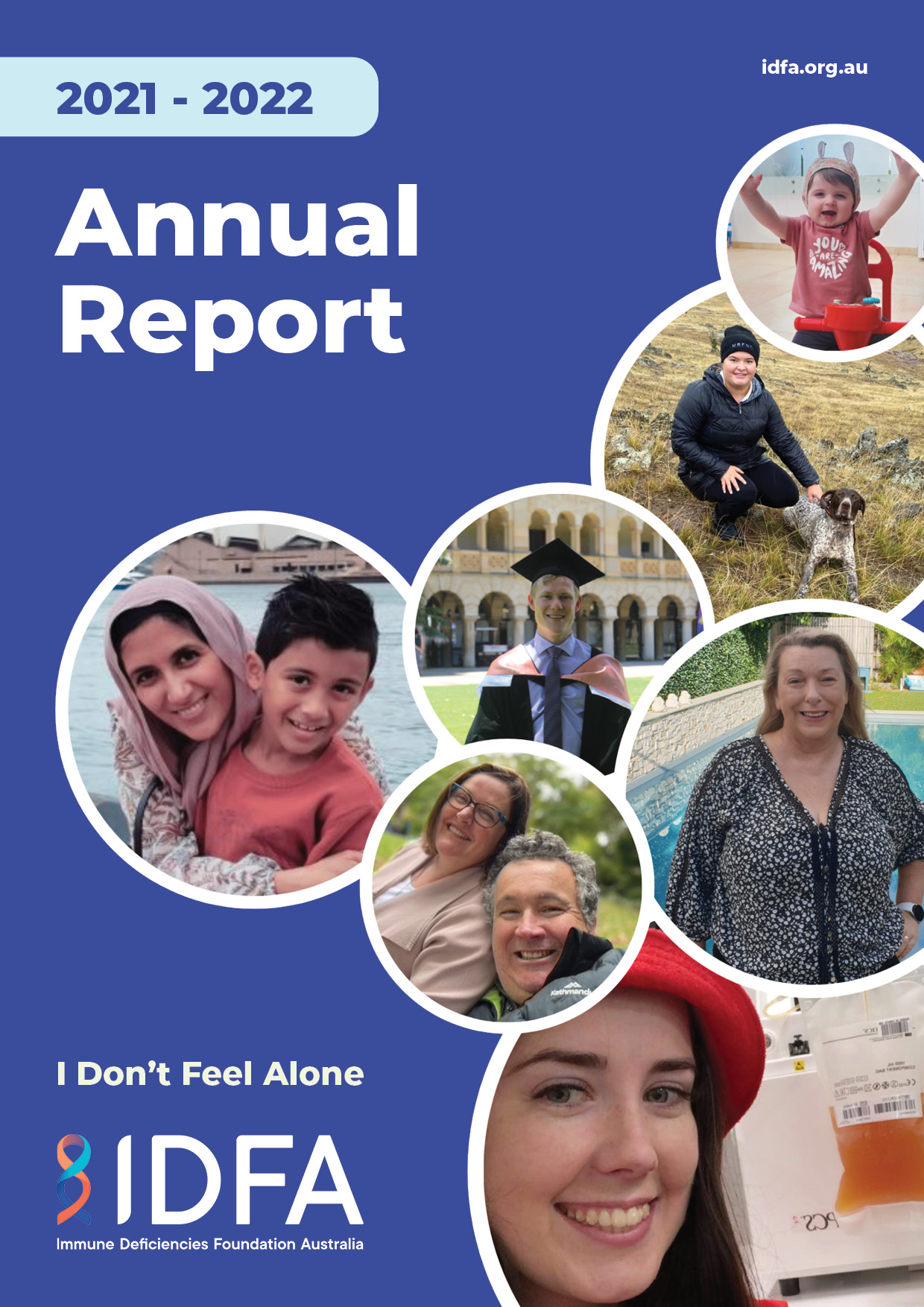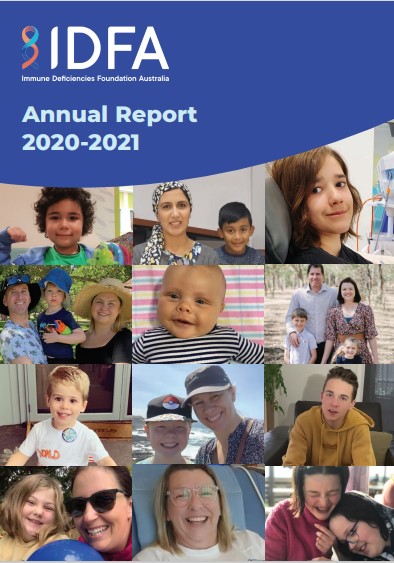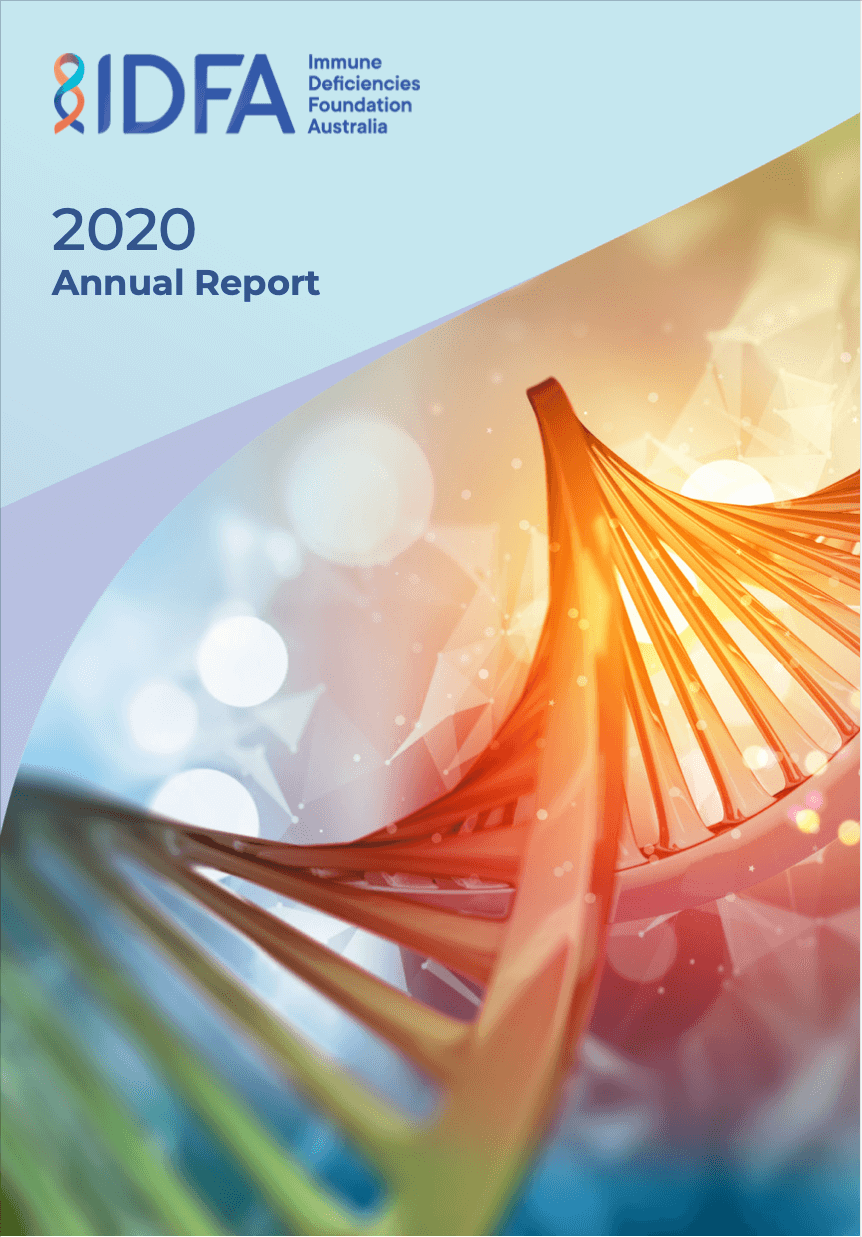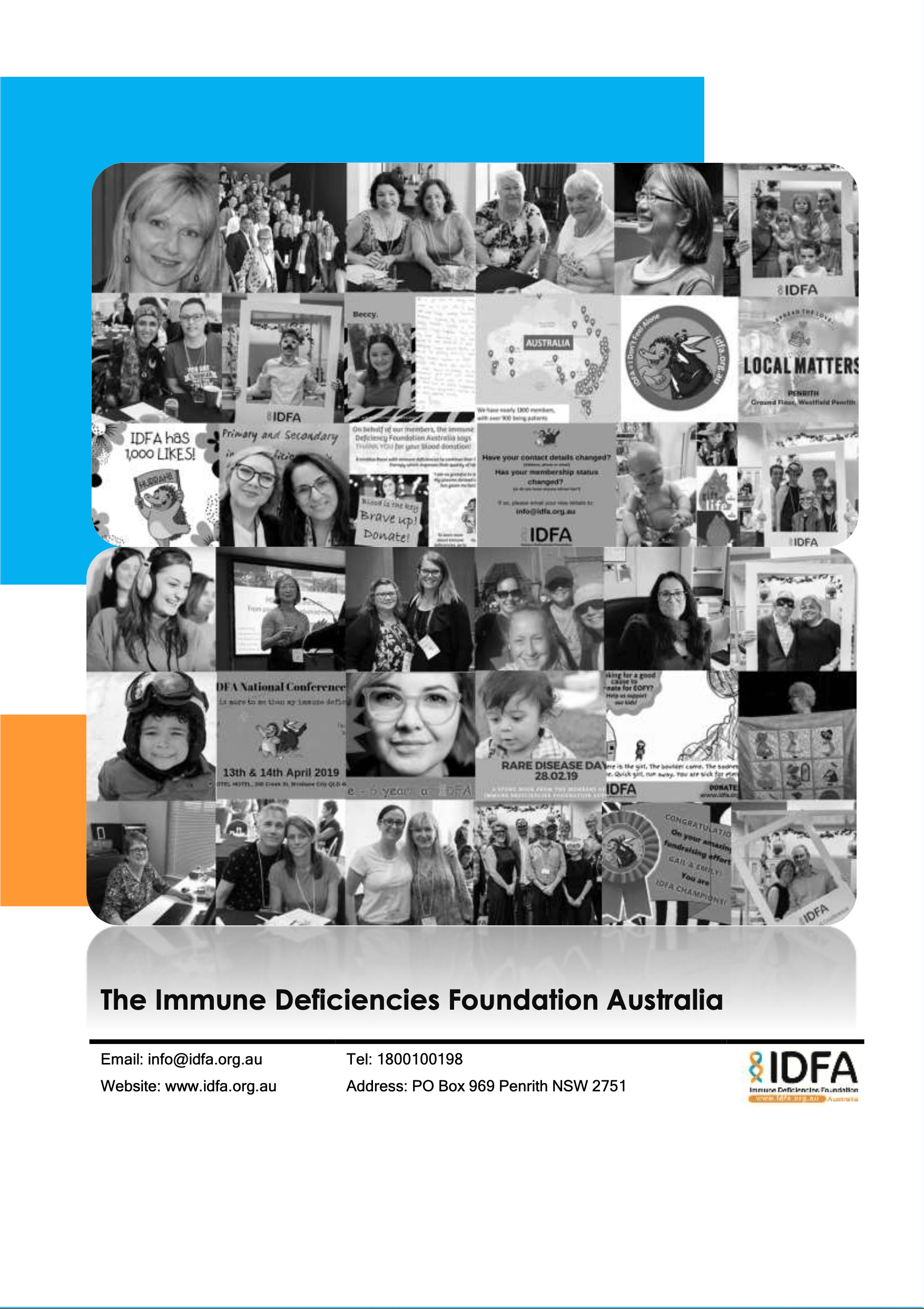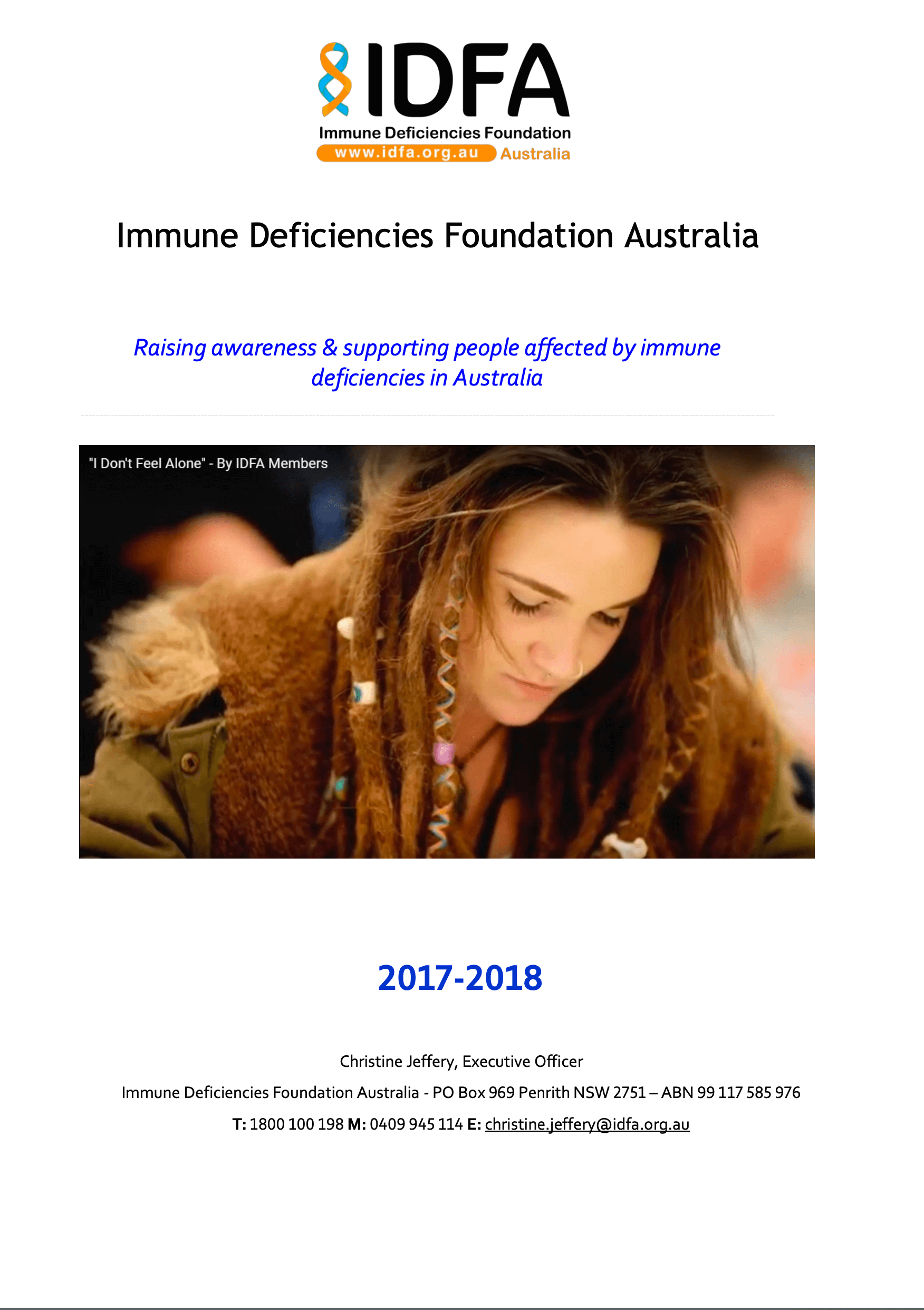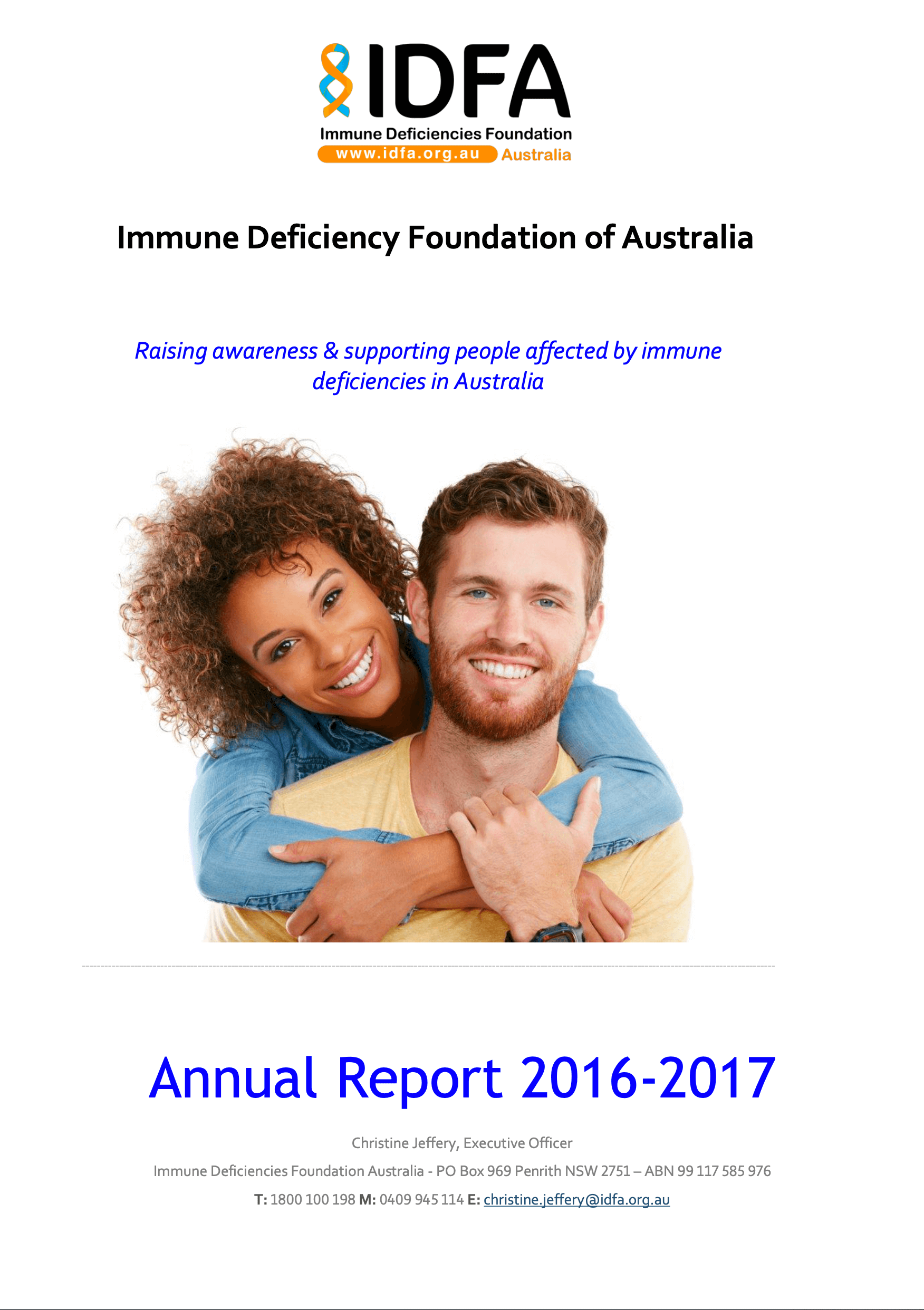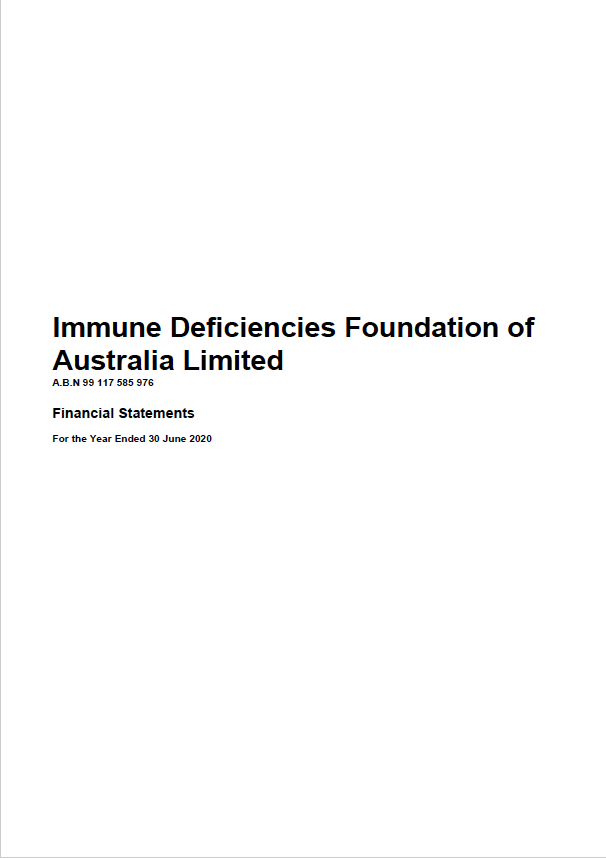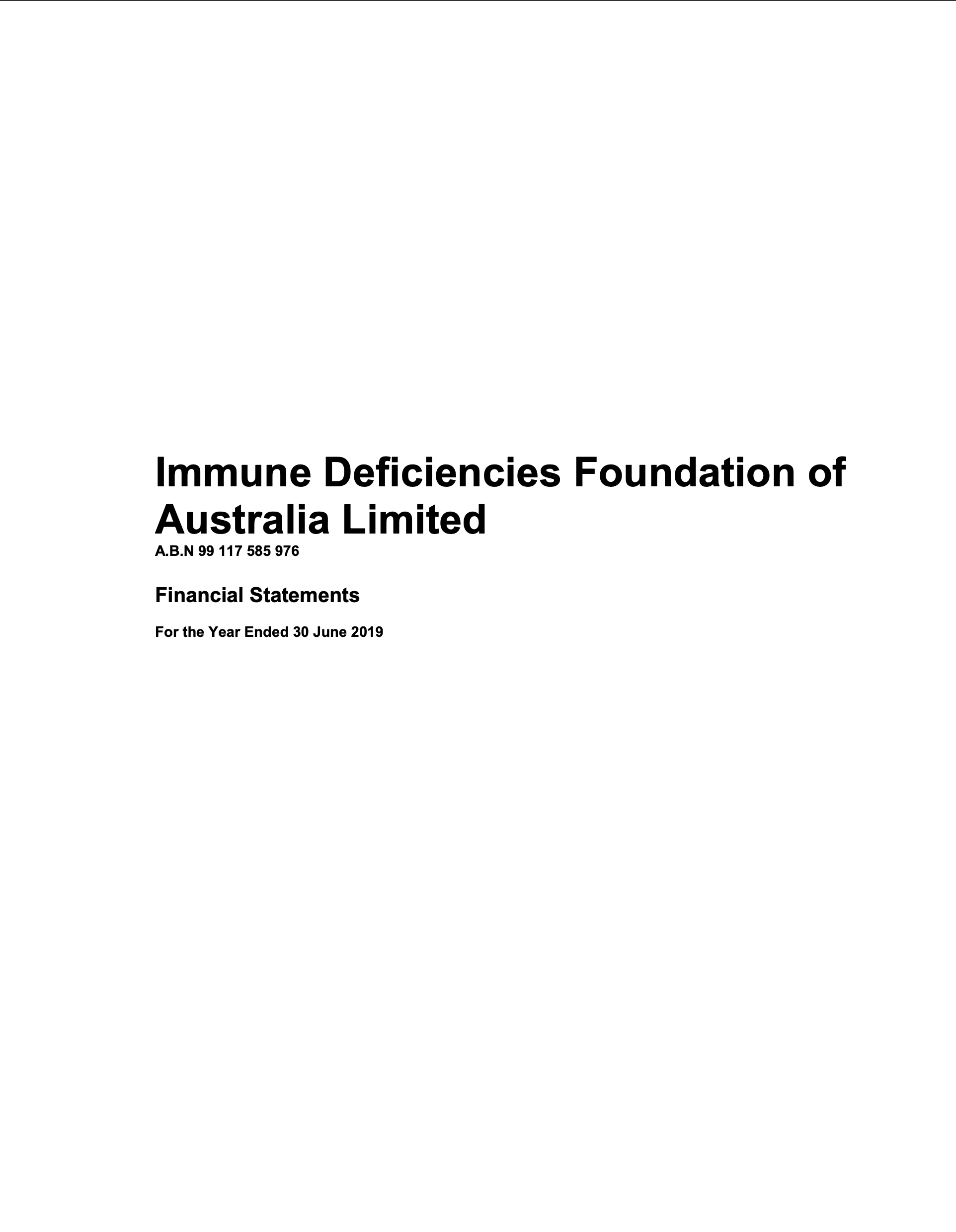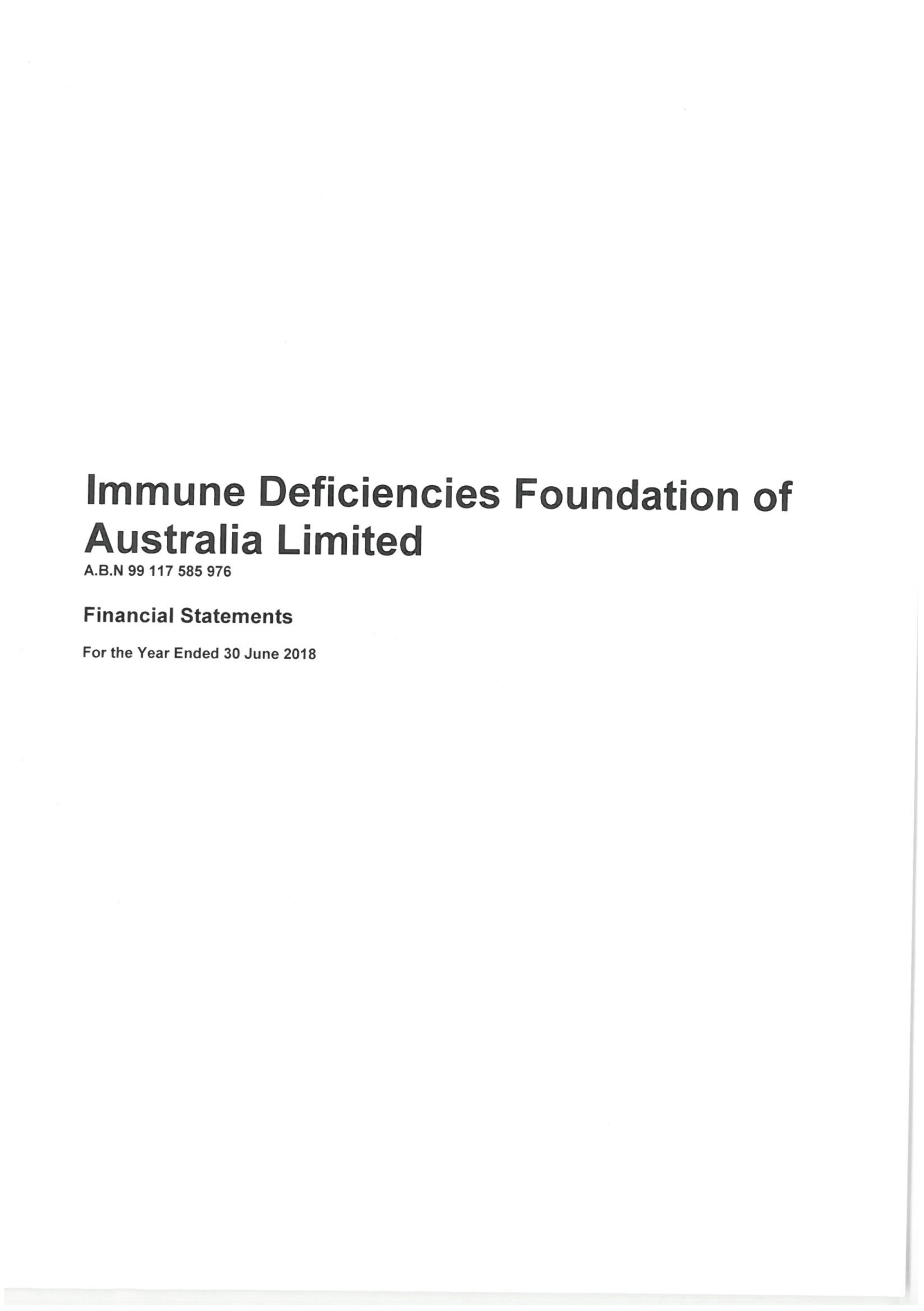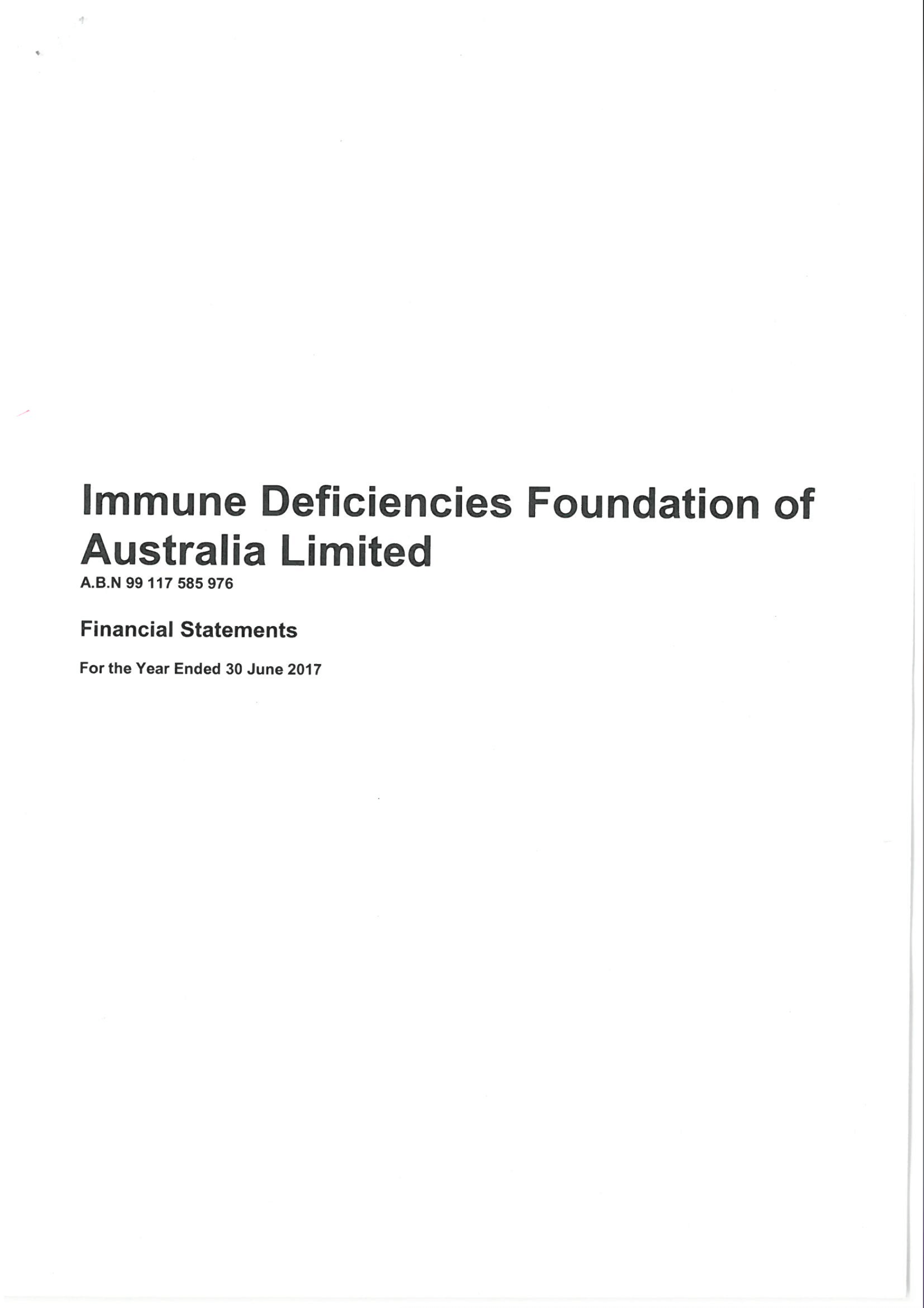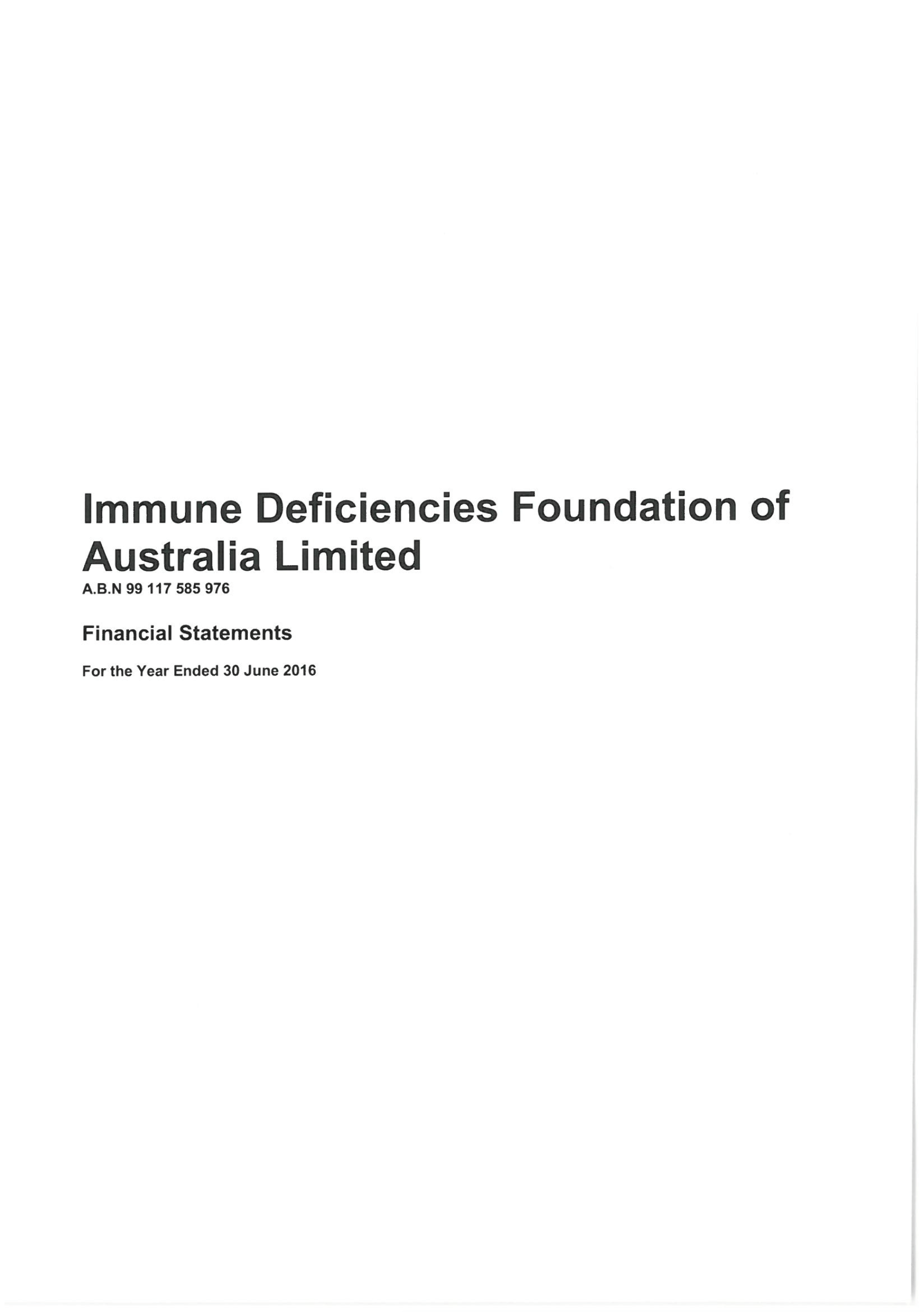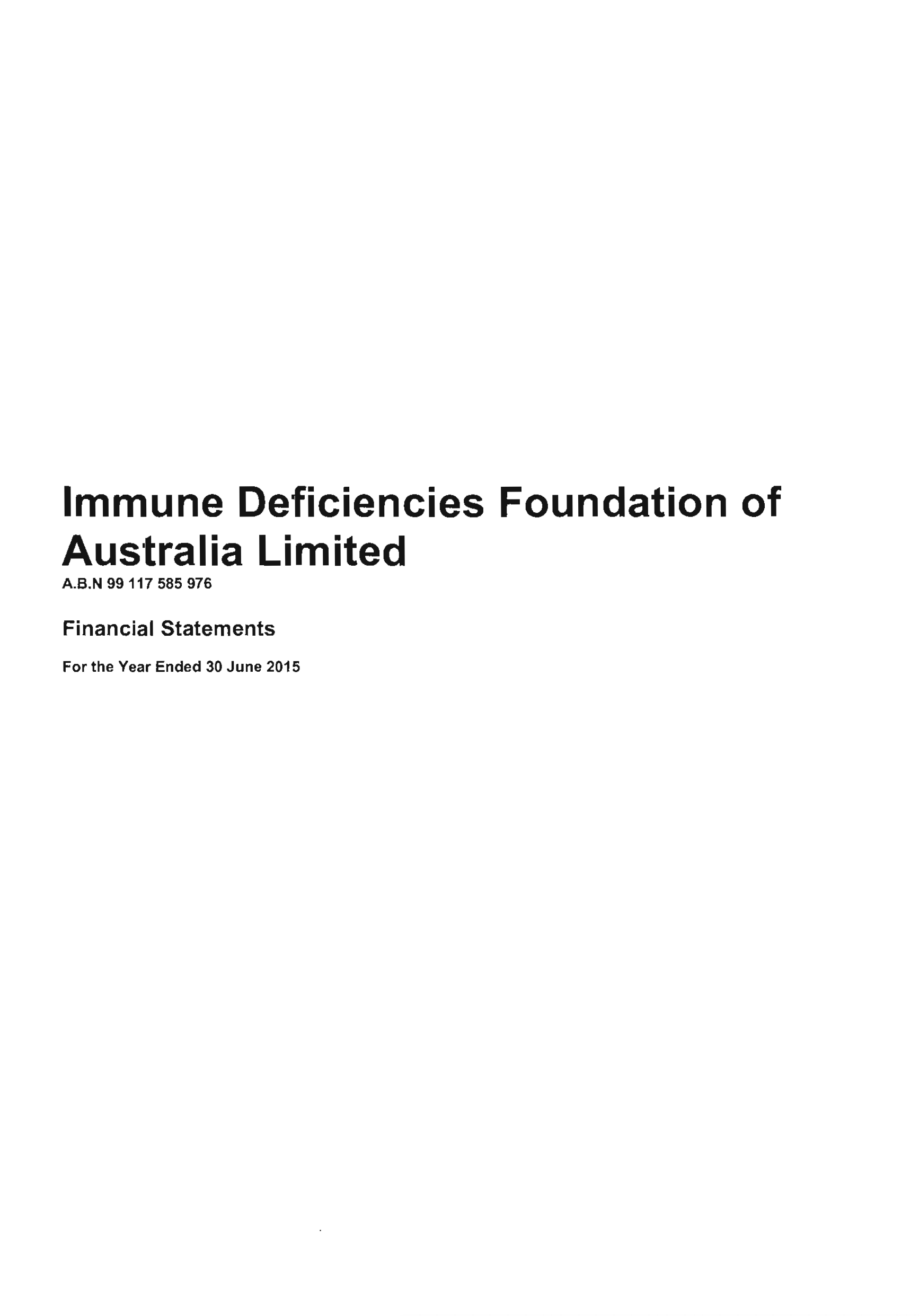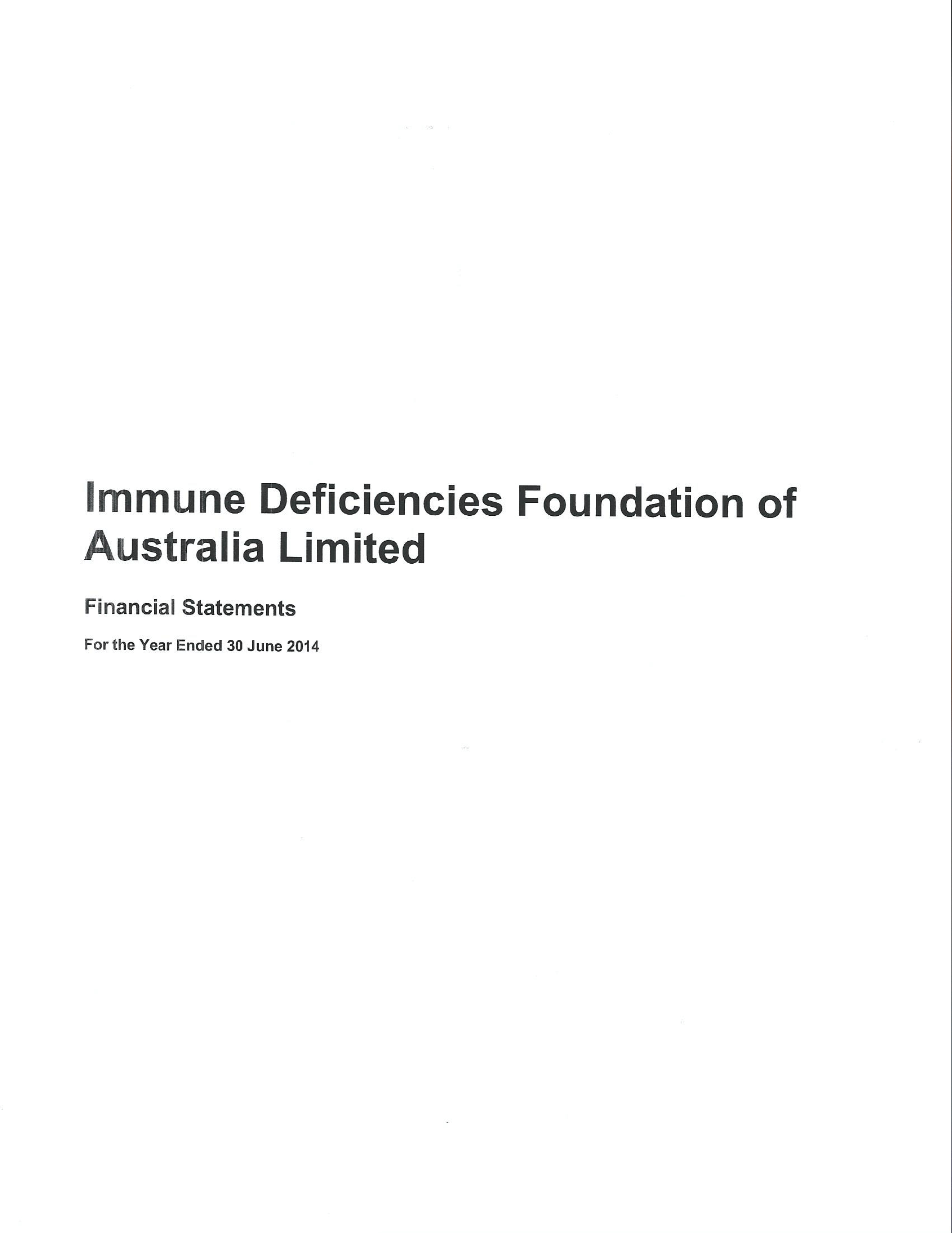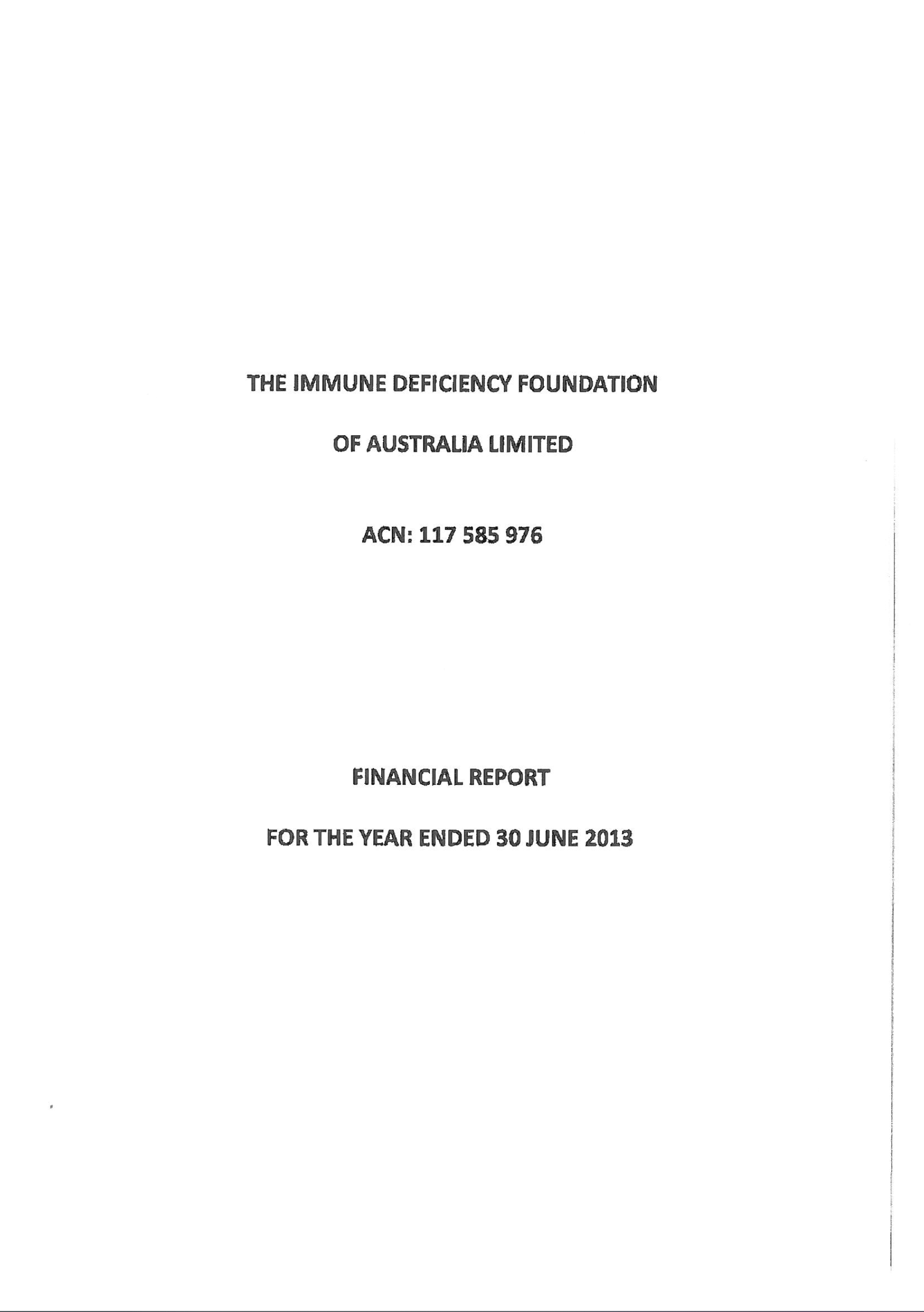Governance
The Immune Deficiencies Foundation Australia (IDFA) is the Australian peak patient body supporting those affected by immunodeficiencies (primary and secondary).
The IDFA was founded in 2005, bringing together a number of separate State-based patient groups. The IDFA has the support of leading immunology health professionals both in Australia and internationally. It is affiliated with the International Patient Organisation for Primary Immunodeficiencies (IPOPI) and works closely with the Australian Society for Clinical Immunology and Allergy (ASCIA).
In 2017 the Board of IDFA resolved to also support patients with secondary immunodeficiencies caused by transplantation, disease (e.g. cancer) or treatment (e.g. chemotherapy).
IDFA is a company limited by Guarantee, a not-for profit organisation and a registered charity (find us on the ACNC Charity Register Summary and the ASIC Company Summary IDFA.
A company limited by guarantee is a specialised form of public company designed for non-profit organisations. One of the key advantages of this legal form is that it allows the organisation to operate nationwide. This is important for the IDFA, as a national peak body.
The IDFA exists to support its ordinary members –patients, their families and medical professionals. The day to day management of the IDFA is undertaken by a small team of paid staff, assisted by ordinary members who volunteer their time. This staff team, led by an Executive Officer, is responsible for managing the IDFA in accordance with the IDFA’s strategic direction.
The staff team is governed by a Board of Directors, which is responsible for setting the IDFA’s strategic direction. This Board reports to the voting members of the IDFA company.
The Board’s composition should ensure that a diversity of skills and experience are represented. Key skills for the IDFA Board include:
- patients and/or family members with an understanding and awareness of immune deficiencies
- medical professionals with an understanding and awareness of adult and paediatric immune deficiencies
- financial management skills and/or experience
- governance skills and/or experience
- media, promotions, fundraising and/or marketing skills and/or experience
- legal qualifications and/or experience.
While Board members do not represent specific geographic areas, the Board usually tries to ensure that its members reflect the broad geographic spread of a national peak body and come from a variety of different geographic locations.
